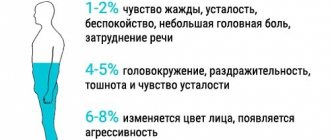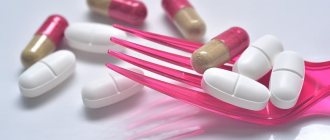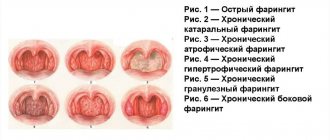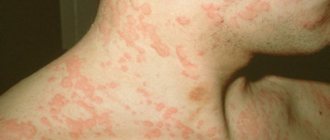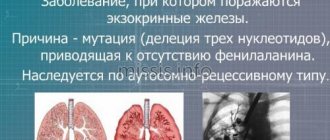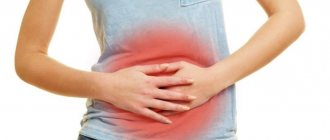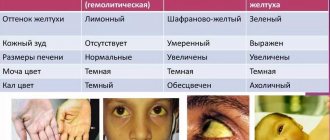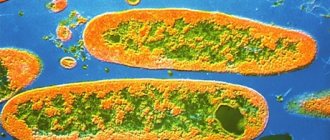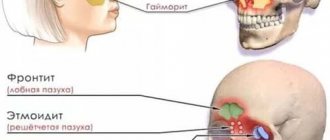Dehydration (dehydration) is a pathological process that involves the body losing a significant amount of fluid, which can lead to irreversible consequences.
Dehydration is not a disease; on the contrary, in many cases it can be the result of some serious illness. There is a risk of dehydration at any age - both in adults and children - so you need to understand what it is and how to avoid this condition.
The body's need for water
The human body can not only accumulate, but also retain nutrients for a long time. This is only possible if it does not experience a water shortage. In general, a person cannot survive without it for more than 3 days. Liquid accounts for about 2/3 of the total body weight. Even a slight decrease in water level causes serious disturbances. The fact is that cells cannot maintain their existence in an overly viscous environment.
The system that ensures the balance of biochemical processes in the body is called homeostasis. If it is disrupted, then the normal functioning of organs and systems becomes impossible.
Fluid in the human body can be in 3 states:
- Blood that circulates through blood vessels.
- Intercellular fluid, which is located in the intercellular space.
- Intracellular fluid that contains all the structures of living cells.
Water is very important for cells, as it is a nutrient medium for them.
As the body ages, the volume of water in it begins to decrease. In children who have just been born, it makes up 80% of their total body weight. In adults, this figure drops to 60%. Children lose fluid much faster than adults. This is due to the fact that the system that controls water-salt metabolism is poorly adjusted in them.
By the age of 70, the indicators of intracellular and intercellular fluid decrease from 1.1 to 0.8. This negatively affects the functioning of all internal systems. Therefore, doctors strongly do not recommend that people make themselves thirsty. You need to drink water as often as possible. Water provides nutrition to cells, but dehydrated cells cannot work normally.
First symptoms
The first symptoms of dehydration include:
- Thirst.
- Drying of mucous membranes.
- Fatigue and weakness.
- Losing weight. A person with dehydration loses at least 5% of their body weight.
Older people do not suffer from thirst as severely as younger people.
Therefore, it is important to pay attention to other signs of dehydration:
- Lack of desire to eat.
- Unexplained feeling of tiredness.
- Drowsiness.
- Increased body temperature.
Fermented milk therapy
Fermented milk products will help you heal as soon as possible and completely avoid dehydration. The undisputed champion in this area is medium-fat kefir. It quickly restores the disturbed intestinal microflora and tones the rest of the digestive organs. Kefir has been proven to combat fatigue, nausea, muscle cramps and excessive sweating.
Greek yogurt is not inferior to it in beneficial properties. Lactic acid bacteria are a powerful nourishment for a broken digestive system and a weakened immune system. A balanced combination of proteins and carbohydrates not only saturates the body with energy, but also normalizes metabolic processes. Ripe strawberries, raspberries and gooseberries will help enhance their effect.
Types of dehydration
Depending on the nature of fluid loss and how long ago dehydration developed, there are 3 types:
Hypertonic (water deficiency, intracellular) dehydration.
This type of dehydration occurs when excess water is removed from the body. This situation occurs with severe diarrhea, against the background of elevated body temperature, with dyspnea and hyperhidrosis. At the same time, the level of electrolytes in the blood plasma increases (most of all sodium salts become).
To replenish the loss of water, intercellular fluid begins to enter the bloodstream, which leads to an increase in osmotic pressure. To normalize it, the cells themselves begin to release water into the intercellular space. As a result of this process, dehydration of the body develops.
Its main symptoms:
- Thirst and dry mouth.
- Dry skin.
- Impaired consciousness.
- Muscle spasms.
- Increased body temperature.
- Decreased amount of urine excreted.
Hypotonic (hypoosmotic, extracellular) dehydration
. This type of dehydration occurs because the body loses more electrolytes than water. The osmotic concentration of the blood begins to decrease. This situation occurs with profuse vomiting, which is much stronger than diarrhea.
To normalize hemostasis, the body sends sodium salts from the intercellular space into the bloodstream. In this case, water from the bloodstream passes into the interstitium of the cells. As the osmolar concentration of the intercellular fluid decreases, it begins to penetrate into the cells. Potassium electrolytes are displaced from the cells and excreted in urine. There is too much water in the cells, as most of the liquid rushes inside them.
Symptoms of this type of dehydration include:
- Flabbiness of the skin.
- Dry eyes.
- Lack of desire to drink water.
- Dyspnea.
- Increased heart rate.
- Vomiting that develops after drinking water.
Isotonic dehydration
. This type of dehydration occurs because both water and electrolytes are removed from the body at the same time. There are equally few of them in the lymph flow, blood and tissues. Osmolarity and the level of sodium ions in the blood remain normal. It is isotonic dehydration that occurs most often. The patient's well-being can reach moderate severity, but sometimes severe dehydration of the body is observed.
Symptoms of isotonic dehydration are as follows:
- Increased heart rate.
- Slight thirst.
- Deafness of heart sounds.
Causes and risk factors
The following factors lead to dehydration:
- diarrhea: interferes with the absorption of water in the gastrointestinal tract, including from foods that contain it;
- vomiting caused by food or alcohol poisoning;
- intense sweating: a consequence of physical activity or occurring during colds;
- diabetes: some groups of drugs act as diuretics to normalize insulin levels;
- Frequent urination: can be either a feature of the body or a consequence of a disease, taking antihistamines, medications for hypertension, or antipsychotic medications.
Although anyone can experience dehydration, older adults are at greater risk.
Elderly people are susceptible to dehydration due to the fact that the feeling of thirst weakens with age; a person may simply not understand what he wants to drink or forget if there are neurodegenerative disorders (Alzheimer’s disease, dementia, etc.)
People who constantly undergo physical activity are also susceptible to dehydration. For example, athletes are more likely to become dehydrated. People involved in mountain climbing, marathon runners, triathlon or cycling participants, and basketball players are at risk.
Dehydration levels
There are 4 degrees of dehydration, which depend on the amount of fluid lost:
- Mild dehydration.
The body loses 1-3% of water, but no more than 1.5 liters. Hospitalization is not required; lost fluid is replaced by oral dehydration. It is recommended to take a few tablespoons of water every 15 minutes. Recovery occurs quickly and no medical attention is required.
- Moderate dehydration
. Water losses are 3-6%, but not more than 3 liters. If it is not possible to restore the fluid lost by the body at home, then medical attention is required. The doctor recommends taking Regidron, since it will not be possible to stabilize the patient’s condition with water alone.
- Severe dehydration.
Fluid losses are 6-9%. The patient is urgently hospitalized and is given an IV in the hospital room. Self-medication can lead to serious complications.
- Significant dehydration develops when water loss exceeds 10%.
In such a situation, the patient develops problems in the functioning of internal organs, and death may occur.
Varieties
In the medical field, there is a classification of the disease according to the degree of its progression, so dehydration can be:
- light – when up to two liters of fluid are lost;
- moderate severity – loss of no more than four liters;
- heavy - over four liters;
- complicated – deprivation of more than ten liters of water, which poses a threat to human life.
Based on the effect on salt balance, dehydration of the body is divided into:
- isotonic – balance is within normal limits;
- hypertensive – concentration increased;
- hypotonic – the level of salt balance is reduced.
Causes of dehydration in adults
The following reasons can lead to dehydration:
- Acute intestinal infections accompanied by diarrhea and vomiting.
If the patient develops vomiting, then digestive juices and liquid contained in the upper parts of the digestive system come out. Together with it, sodium, potassium and chlorine ions leave the body. During vomiting, the patient cannot replenish fluid reserves orally. When a person develops diarrhea, fluid leaves the body very quickly because the pressure of the blood plasma is higher than the pressure inside the intestines.
- Diseases in which the body temperature rises greatly.
Dehydration due to infectious diseases occurs due to high body temperature and shortness of breath. Sometimes vomiting and diarrhea increase water loss. High body temperature always leads to fluid loss. Patients direct their efforts to achieve sweating. To do this, they take as much tea as possible, but the loss of water in this case will be even more significant.
- Consumption of large amounts of coffee, tea, carbonated drinks.
If a person drinks a lot of coffee, tea, beer or alcoholic beverages, then he supplies the body not only with water, but also with components that contribute to dehydration, such as caffeine. It has been proven that when taking these drinks, water loss is higher than its intake into the body.
- Taking medications: indapafone, diuretics and some others.
As for taking medications, the body will spend water to absorb any drug. This contributes to increased dehydration. Moreover, in 90% of cases, people take drugs without real need and without medical advice. Fighting the symptoms of the disease, and not its root cause, leads to the fact that health deteriorates even more.
- Water leaves the body every day through sweat.
An active person sweats during sports. Therefore, when going to training, you must take water with you.
- Frequent urination.
It is observed in people with diabetes, in which the process of glucose absorption in the body is impaired. If the pancreas produces little insulin, the person will suffer from extreme thirst. The more he drinks, the more often he goes to the toilet. Similar symptoms may occur with diabetes insipidus. This disease develops due to a deficiency in the body of the antidiuretic hormone of the pituitary gland. The patient also suffers from extreme thirst and urinates frequently.
- Situations in which water does not enter the body for a long time.
Children lose a lot of water when they actively move and play. Physical activity is the norm for children, but fluid volumes must be replenished in a timely manner. Adults need to supervise this.
Treatment
Treatment of children and infants consists of taking a medicinal solution, which includes potassium, sodium and other nutrients. Proportions are calculated for each small patient individually. This solution must be given in small portions and warm. The duration of use depends on the change in urine color. If it happens that the child becomes ill, you need to wait about an hour and then repeat the process. At the same time, you can continue to breastfeed your baby.
Older children can be given foods enriched with carbohydrates a few hours after consuming the solution. Such treatment methods are carried out at home for mild disorders. If the degree of dehydration is moderate, treatment is carried out in a clinical setting. The therapy is based on the administration of the same solution, only not orally, but in the form of injections. After this, the baby is sent home, but the next day you need to see the doctor again. In severe stages, the child is treated only in a hospital, and in addition to the solution, the doctor may prescribe antibiotics and medications against vomiting and diarrhea. After discharge from the hospital, you need to call a doctor at home for a few days for an examination.
Treatment of dehydration in adults in the initial stages is carried out independently, but on the recommendation of a specialist. Often you just need to increase your fluid intake and remember to take it on time. But you need to drink only water, preferably at room temperature, and refrain from coffee, tea and sweet carbonated drinks. In severe stages, you need to eat foods rich in carbohydrates. Throughout the treatment, the patient must be constantly monitored by doctors.
When to seek medical help?
It is necessary to seek medical help in the following cases:
- Profuse diarrhea does not stop within 2 days.
- Vomiting continues for more than a day.
- Body temperature rises to 39 °C and above.
- The patient experiences a loss of strength.
- Little urine comes out, the person rarely goes to the toilet.
- Weight decreases quickly.
Sometimes situations arise in which you need to call an ambulance:
- Body temperature reaches 40 °C.
- No urination for 12 hours.
- The patient's orientation in space deteriorates, fainting occurs, or he becomes lethargic and apathetic, has a severe headache or pain in the chest.
- The pulse becomes thread-like, breathing becomes difficult, and convulsions occur.
If in such a situation a person is not provided with medical assistance, he may die.
Diagnosis of dehydration
Diagnosis of dehydration comes down to examining the patient, performing various tests, blood and urine tests. It is important not only to state the fact of dehydration of the body, but also to find out the cause of its occurrence.
Health indicators assessment:
- If the patient has a high body temperature, low blood pressure, breathing and heart rate are rapid, then these are symptoms of dehydration.
- Assessment of pulse and blood pressure levels in a lying and standing position. When a person lies down and then gets up, the pressure decreases slightly, then the heart rate increases and the pressure returns to normal. When a person becomes dehydrated, there is not enough blood circulating in the body. Therefore, the heart will always beat faster, the head will begin to feel dizzy when rising, and the person will experience weakness.
Submitting urine for analysis:
- Assessment of the color and transparency of urine, its specific gravity and the presence of ketone bodies in it. All these signs allow you to diagnose dehydration.
- If glucose is present in urine, this may indicate developing diabetes mellitus.
- Kidney disease is indicated by the presence of protein in the urine.
- Sometimes urine allows one to suspect certain infections.
Blood analysis:
- In terms of diagnosing dehydration, it is important to assess the level of salts, electrolytes, glucose, protein and creatinine in the blood.
- A biochemical blood test allows you to clarify the presence of an infectious process.
- The blood may be sent for additional research. The need for them is determined by a doctor.
What to drink if you are dehydrated at home?
To replenish the body's reserves of water and salts, you need to add salt solutions to the water, or prepare them separately.
Drugs used for rehydration:
- Gastrolit.
- Hydrovit.
- Orasan.
- Orsol
- Registrar.
They are available in powder or granule form, which quickly dissolve in water. You can prepare a saline solution yourself by adding a spoonful of salt to the water (you will need a teaspoon of sodium chloride per liter of liquid). You need to drink not because you are thirsty, but because it is a necessity. The closer the temperature of the liquid is to the human body temperature, the faster it will be absorbed.
Dehydration in children can be treated at home only if it is mild. A child is offered the same medications as an adult. They are drunk in quantities in which the liquid is removed from the body. If the child is an infant, then he needs to be fed through a syringe without a needle.
You can only cope with mild dehydration at home. In other situations, you must consult a doctor.
Fighting dehydration: useful tips and home recipes
For the normal functioning of our body, which consists of 70% water, it is necessary to constantly monitor its level of hydration. If there is not enough fluid in the body, the water-salt balance will be disrupted and dehydration will occur.
It can manifest itself as a mild feeling of thirst, and in severe forms it can be fatal. Dehydration is especially dangerous in hot weather, when fluid actively evaporates from the body.
Our simple homemade recipes and useful tips will help you protect yourself from dehydration and prevent unpleasant consequences.
Causes and symptoms of dehydration
Dehydration is a process in which the body loses more fluid than it receives. Every cell of the human body needs oxygen and water for normal functioning. No one is immune from dehydration, but children, the elderly and patients with chronic diseases are at risk.
The most common causes of dehydration:
- heavy physical activity in the heat,
- diarrhea,
- vomit,
- increased sweating,
- frequent urination.
The symptoms of this disease vary depending on the severity of its manifestation. Signs of mild to moderate dehydration:
- dry mouth,
- headache,
- thirst,
- rare urination,
- dry skin,
- fatigue,
- muscle spasms,
- dizziness,
- constipation,
- general weakness.
Symptoms of severe or chronic dehydration:
- strong thirst
- confusion,
- sunken eyes,
- dry skin with loss of elasticity,
- practically no urination,
- severe dry mouth,
- rapid breathing,
- low blood pressure,
- cardiopalmus,
- faintness or loss of consciousness.
If treatment is not started in time, dehydration can lead to a number of serious health complications. For severe forms of dehydration, you should immediately consult a doctor; for moderate dehydration, you can take preventive measures at home. Below we publish useful tips and home recipes for treating this disease.
Drinking water regularly is the best preventative measure
The first and most important rule as a measure to prevent dehydration in hot weather is to increase the amount of fluid consumed. Doctors' advice for treating dehydration at its first symptoms also begins with recommendations to increase the water content in the body.
A person needs to drink enough water throughout the day, even if he does not feel thirsty. On average, a healthy man in a temperate climate should drink about three liters of water per day, and a woman - about two liters of water per day.
In addition to regular water, it is useful to include more broths and soups in the volume of fluid consumed as a measure to prevent dehydration. With their help, you can replenish lost minerals and vitamins. They are also effective in treating dehydration.
To make broth or soup even healthier, add zucchini, radishes or celery. Chicken and meat broths are considered the most nutritious. In the hot weather, treat yourself to fruit ice, which is easy to prepare yourself.
To do this, just pour freshly squeezed juice into an ice tray and put it in the freezer to cool.
Dairy foods from dehydration
At the forefront of dairy foods that are useful in the fight against dehydration is yogurt - one of the most effective remedies against vomiting and diarrhea. This product is a real “spring” of electrolytes. In addition, yogurt is easy to digest and soothes the stomach.
Homemade recipes for dehydration often include yogurt dishes. On hot days, it is useful to consume it several times a day and preferably without sweet fillers.
It is better to add non-calorie foods such as low-fat cottage cheese or regular boiled rice with a little salt to yogurt.
Buttermilk, or the skim cream obtained from butter production, is another great remedy for dehydration recognized by the ancient teachings of Ayurveda.
Buttermilk is rich in minerals, which are lost in the body due to excessive sweating.
To prevent dehydration, drink this dairy product several times a day, or instead drink a cup of kefir mixed with dry ginger.
Simple homemade recipes for dehydration
When the body is dehydrated, it is very important to quickly restore lost fluid and minerals. There is one simple way to achieve this using a rehydration solution. You can prepare it yourself using a home recipe:
- Add half a teaspoon of salt and six teaspoons of sugar to four glasses of water.
- Stir the solution thoroughly until the sugar and salt are completely dissolved.
- Drink the resulting solution several times a day until you fully recover from dehydration.
- If you do not want to prepare the solution yourself, then you can purchase a similar product at the pharmacy.
Homemade recipes using barley and water are no less useful. Such solutions help to quickly return a dehydrated body to its normal state. The nutrients contained in barley replenish the minerals lost due to dehydration. Here is one simple recipe:
- Bring the water with barley to a boil.
- Let the resulting solution cool and then strain it.
- Add a little honey and lemon juice.
Another simple way to restore a dehydrated body is lemon water. In addition to hydration, lemon juice fills the body with energy and gives a boost of vigor. Making lemon water at home is easy:
- For one glass of water you need to take half a lemon.
- Add a teaspoon of honey, half a teaspoon of ground black pepper and a pinch of salt.
- The resulting drink must be consumed regularly for one month.
Drugs prescribed for dehydration in medical institutions
Moderate and severe dehydration should be treated with IV drips. This is the only way to quickly restore fluid loss and lost blood volumes. For this, Ringer's solution, saline, glucose, trisol, disol are used. Hemodez and Poliglyukin are prescribed when it is necessary to relieve symptoms of intoxication from the body. They are indicated for bleeding, as they prevent further removal of fluid from the body.
If the patient's body temperature rises, it must be brought down using antipyretic drugs.
To eliminate vomiting, antiemetics are prescribed, for example, Osetron.
Drugs such as Gastrolit, Regidron, Oralit or other powdered salt preparations are used only as an auxiliary treatment.
From the world by thread
There are several other foods that are helpful in preventing dehydration. First of all, these are beans with its very successful set of elements. Iron improves the flow of oxygen to cells, zinc improves carbohydrate metabolism, and sulfur prevents intestinal infections.
Being a generous source of slow carbohydrates, buckwheat is great for reducing energy loss. Its active substances stimulate hematopoiesis and increase the elasticity of blood vessels. In addition, the body absorbs buckwheat easily, thereby receiving a colossal supply of vitamins.
There are reasons to include eggs in the treatment menu, which improve the functioning of the liver and bile ducts. The abundance of iron combined with vitamin E helps to quickly restore strength. In addition, eggs protect the skin from UV rays, keeping it youthful.
Remember, the best treatment for dehydration is prevention. Drink more fluids, eat right, and spend less time in the hot sun without protection. And if alarming symptoms cannot be overcome, consult a doctor immediately.
Effects of dehydration on various body systems
If severe vomiting and diarrhea lead to dehydration, then in addition to water, electrolytes are removed from the body in significant quantities. This causes water to move from the intercellular space into the bloodstream. Therefore, there is even less fluid in the general bloodstream.
Dehydration for the brain
The brain suffers from hypoxia as its blood supply deteriorates. Its natural protection in the form of the blood-brain barrier is reduced. The blood-brain barrier is the barrier between the capillary network and the neurons of the nervous system. They are the ones who normally prevent harmful substances from entering the central nervous system.
Dehydration and decreased barrier function lead to toxins entering the brain, which can later cause the development of Alzheimer's disease, Parkinson's disease, and multiple sclerosis.
Against the background of dehydration, the level of intracellular fluid first decreases to 66%, then the level of intercellular fluid decreases by 25%, after which 8% of water is removed from the blood. The body launches such a mechanism in order to provide nutrition to the brain. After all, it consists of 85% water. If the brain loses even 1% of fluid, it will lead to irreversible damage.
Dehydration and blood cells
Against the background of dehydration, processes such as:
- The blood is getting thicker.
- The lumens of blood vessels narrow.
- The blood becomes viscous.
- The likelihood of blood clots increases.
Due to dehydration, blood cells lose their natural activity and stick together. Such associates are unable to perform their functions correctly; they cannot leak through cell membranes, so blood fluidity deteriorates. It must be remembered that the clumping of red blood cells, leukocytes and platelets is the main factor leading to the development of atherosclerosis.
The immune system
The immune system reacts to dehydration by triggering chronic immunodeficiency diseases, such as bronchial asthma or scleroderma. This also includes infertility, bronchitis, systemic lupus erythematosus, etc.
Metabolism
Obese people may not even realize that their excess weight is a consequence of dehydration. The less water in the cells, the more they need energy, which they take from food. This promotes fat accumulation. Moreover, the source of such energy is often starches and proteins. Therefore, dehydration and obesity have a close relationship.
Signs of water deficiency: symptoms of dehydration
What is the main symptom of dehydration? Any person will answer this directly: it is thirst. This is true, but only for the initial and middle stages of fluid deficiency, and for a middle-aged adult. Only in middle-aged people do all the interneuron connections that control the thirst center located in the brain work well. In addition to the expressed desire to drink, which can be painful and unbearable, symptoms of dehydration can be considered:
- low sweating, and the production of a small amount of concentrated, dense and darkish urine containing a large amount of salts. But, unlike thirst, low sweating may be unnoticeable to the patient himself, just like a small amount of urine. Only by going to the toilet can you be convinced of this, and only by paying attention. And when you don’t want to go to the toilet, you somehow don’t pay attention;
- but a symptom such as dry mouth, lack of saliva, or a condition where the saliva is viscous, white and foamy is difficult to miss;
- if dehydration progresses, then reduced skin turgor and wrinkles appear, which, when folded, do not straighten out, or straighten out very slowly;
- general health worsens;
- cyanosis appears at the tip of the nose, lips, ears, fingers, due to a slowdown in capillary blood flow;
- blood pressure drops. After all, it is impossible to maintain hydrostatic pressure in the system if there is no liquid. No amount of increased vascular tone and increased work of the heart can preserve it if there is no working fluid in the hydraulic system - water. The patient initially develops signs of orthostatic hypotension, when dizziness and lightheadedness appear when suddenly rising to a vertical position;
- later confusion, drowsiness, and shock occur;
- with extremely rapidly developing extreme dehydration (about 12% of body weight), the blood thickens in the vessels, the veins collapse, microcirculation is disrupted, and body temperature rapidly drops. Thrombosis develops, and the person dies due to hypovolemic shock.
Infants and toddlers have special symptoms of severe dehydration that do not occur in adults. This:
- progressive pallor;
- rapidly developing retraction of the eyeballs; when pressing on them, their softness is felt;
- the appearance of dark circles under the eyes;
- in infants, in addition to sunken eyes, sunken fontanelles can also be detected upon palpation, that is, unhealed sutures between the bones of the skull filled with temporary cartilaginous tissue;
- The crying of such a baby is dry, without tears, since there is also not enough tear fluid;
- The vocal cords, which can produce a loud cry in a child, must have turgor and be elastic. If dehydration progresses, the vocal cords become flabby and dry out, and crying becomes hoarse and quiet, with virtually no screaming.
These symptoms are quite enough to make a diagnosis and begin urgent fluid replacement, since the baby will not complain to you about thirst or lack of urination. Naturally, in children with severe and even moderate dehydration, it is useless to administer fluids through the mouth; massive intravenous rehydration therapy is necessary.
Preventing dehydration
To prevent the development of dehydration, the following preventive measures must be observed:
- If a person knows that he will sweat, he needs to provide himself with drinking water. Stress and physical activity lead to its removal from the body. You need to drink as much as you want.
- Do not exercise in the heat or in a hot room.
- It is necessary to ensure that children and the elderly receive sufficient water. They must have constant access to fluids. It is recommended that people with poor hearing drink more water.
- Don't drink alcohol in the heat
- In hot weather, you should always have a bottle of water with you. Clothes should be light so that the body does not suffer from the heat.
Folk remedies
It is effective to use homemade solutions, which are similar in properties to pharmacy ones:
- Dissolve 1 tsp in a glass of warm water. sugar and salt.
- Dissolve 2 tbsp in 500 ml of boiled water. l. sugar and ¼ tsp. salt with baking soda.
- Dissolve 1 tbsp in 1 liter of water. l. salt, and separately in the same amount of water - 1 tbsp. l. Sahara. These solutions are taken alternately with an interval of 10 minutes.
Ready-made solutions should be taken in the same way as pharmacy ones. You can alternate them with tea, fruit juices and regular clean drinking water. The temperature of drinks should be approximately 22C for quick and healthy absorption. The solution prepared independently is stored in the refrigerator for 2 days, so making large reserves is not recommended.
It is useful for symptoms of dehydration not only to drink enough, but also to follow the rules of a healthy diet. It is important to eat vegetables, fruits and berries. They effectively replenish the deficiency of fluid, vitamins and microelements. For example, a simple zucchini consists of 85% water, but also contains potassium, zinc, magnesium, folic acid and vitamins A, C and K.
Eating zucchini when mildly dehydrated improves metabolism, stabilizes sugar levels and improves heart function. Containing even more water, cucumbers are rich in fiber and digestive enzymes. Also useful are cabbage, tomatoes, radishes, spinach and celery.
When the fluid level drops below normal, it is recommended to consume watermelons, any citrus fruits (in the absence of allergies) and juices from them, apples, plums and any berries. Whole milk, which is close in composition to an electrolyte, helps against dehydration.
Symptoms of dehydration in adults can be reduced with regular chicken broth, which is rich in nutrients. White meat soups are most beneficial, as their pH is close to alkaline. For 1 liter of broth you need to take no more than 2 tsp. salt.
If symptoms of dehydration appear, it is not recommended to abuse drinks with a high tannin content (tea, coffee), as well as herbal infusions, which often have negative effects.

